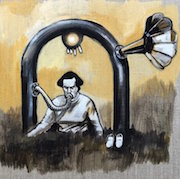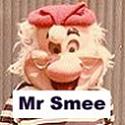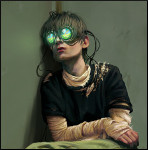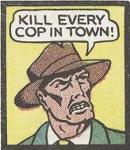J_RBG posted:Hey idiots how about an open-world book with loot https://forums.somethingawful.com
|
|
|
|
|

|
| # ? May 16, 2024 16:39 |
|
I know it's silly but Knives Out "shamed" me into a second attempt at Gravity's Rainbow; previously I'd had a copy on audible and I gave up somewhere in chapter 2 because I couldn't tell reality from fantasy within a single paragraph. Accordingly, this time I opted for a print copy and also determined to notes as I went. It was better; I was more comfortable and better able appreciating the prose more, the evocative scenes, but I was still troubled by how confused I got, how often I had go back or re-read. But then I came here and:mdemone posted:Pynchon trained me out of that need to understand each reference and connection. If you go into GR trying to do that, for example, well....good luck. Franchescanado posted:
Well that's an unexpected bolt of empathy flung out of the swirling mess that is the internet; I thought it was just me! I feel like I can just relax and keep going now, thanks all for the Python and Joyce chat a few pages back.
|
|
|
|
ThePopeOfFun posted:Have any of you nerds read Remainder by Thomas McCarthy and want to give a take? I have, thought it was alright but laying it on too thick with the symbolism
|
|
|
|
Jack B Nimble posted:I know it's silly but Knives Out "shamed" me into a second attempt at Gravity's Rainbow; previously I'd had a copy on audible and I gave up somewhere in chapter 2 because I couldn't tell reality from fantasy within a single paragraph. Accordingly, this time I opted for a print copy and also determined to notes as I went. It was better; I was more comfortable and better able appreciating the prose more, the evocative scenes, but I was still troubled by how confused I got, how often I had go back or re-read. But then I came here and: Use this when you get confused: Things That Happen (More Or Less) In Gravity’s Rainbow
|
|
|
|
And then the second time you read it, use the Weisenburger guide to really freak out.
|
|
|
|
|
Jack B Nimble posted:I know it's silly but Knives Out "shamed" me into a second attempt at Gravity's Rainbow; previously I'd had a copy on audible and I gave up somewhere in chapter 2 because I couldn't tell reality from fantasy within a single paragraph. Accordingly, this time I opted for a print copy and also determined to notes as I went. It was better; I was more comfortable and better able appreciating the prose more, the evocative scenes, but I was still troubled by how confused I got, how often I had go back or re-read. But then I came here and: It took me a few tries to really get into Gravity's Rainbow too. I'm super glad I stuck with it though, once it clicked I loved it even during the parts where I was confused as heck. Godspeed goon.
|
|
|
Srice posted:It took me a few tries to really get into Gravity's Rainbow too. I'm super glad I stuck with it though, once it clicked I loved it even during the parts where I was confused as heck. Godspeed goon. Same. Its really funny and fun and majestic and leaves you thinking about it for years
|
|
|
|
|
GR was the first book I read where I became aware of the structure of the narrative can have an identifiable shape to it. The first hundred or so pages are a sort of chaotic mess rising up into something resembling a coherent narrative only to descend back into a fever dream at the end - a narrative arc in a literal sense, mimicking the trajectory of a rocket. That realization was mind-expanding and really changed what I thought a book could be.
|
|
|
|
Fuuuuck now you guys are making me wanna reread it and I don't have time to get through GR before the end of the year if I'm gonna hit my reading goal (I'm not).
|
|
|
|
Heath posted:GR was the first book I read where I became aware of the structure of the narrative can have an identifiable shape to it. The first hundred or so pages are a sort of chaotic mess rising up into something resembling a coherent narrative only to descend back into a fever dream at the end - a narrative arc in a literal sense, mimicking the trajectory of a rocket. That realization was mind-expanding and really changed what I thought a book could be. In terms of structure, it's also a mandala whose quadrants correspond precisely to the Christian liturgical calendar during the events of the book. And there is absolutely no way in hell anyone could get that on a first reading, because Pynchon dates his events by referring to contemporaneous things that made the British newspapers on a particular day. Read Weisenburger and have your mind ripped out of your head and thrown in the trash.
|
|
|
|
|
Take the plunge! Okay! posted:This reminds me, I’ve had Balestrini’s The Unseen on my shelf unread for years, I should probably read it. Which titles did you order? That one and We Want Everything. ThePopeOfFun posted:Have any of you nerds read Remainder by Thomas McCarthy and want to give a take? I've only read Satin Island and some of his essays, I like him and his project. mdemone posted:
Not really into exoteric v. esoteric readings. Just enjoy the book and worry about gnosis later. Boatswain fucked around with this message at 16:07 on Dec 13, 2019 |
|
|
|
esotericism loving whips
|
|
|
|
|
chernobyl kinsman posted:esotericism loving whips My local used book store has a whole section of esoterica, right next to the equally sized religion section (both are several shelves). I havent dared look too closely cause i have a bad tendency to buy myself poor just because i like a title/cover.
|
|
|
|
i read melzer's philosophy between the lines: the lost history of esoteric writing last month and its a great place to start
|
|
|
|
|
chernobyl kinsman posted:i read melzer's philosophy between the lines: the lost history of esoteric writing last month and its a great place to start thx for the rec, the blurb sounds super interesting! 
|
|
|
|
Esoteric literature is not the same as esoteric reading.
|
|
|
|
Started Daša Drndić's Doppelgänger today. There's a scene where two old people in adult diapers wank each other off, peppered with Holocaust references. Sounds like the sort of thing you perverts are into
|
|
|
|
chernobyl kinsman posted:i read melzer's philosophy between the lines: the lost history of esoteric writing last month and its a great place to start If anyone else is interested in this I found a republication of one chapter along with a podcast interview with the author: https://econjwatch.org/articles/a-beginner-s-guide-to-esoteric-reading
|
|
|
|
Boatswain posted:Esoteric literature is not the same as esoteric reading. i dont think anybody meant esoteric in the syncretic/eclectic sense
|
|
|
|
Reading Dictionary of the Khazars and it’s pretty cool. Started at the start but read any entries that take my fancy or any that are noted as appearing in all three books
|
|
|
|
Can someone remind me of the book about the guy who rewrites Don Quixote exactly as it is?
|
|
|
|
It's Borges, "Pierre Menard, Author of the Quixote"
|
|
|
|
thehoodie posted:It's Borges, "Pierre Menard, Author of the Quixote" Thank you!
|
|
|
|
Are people still big on Hemingway? Not having read anything of his before, I picked up A Moveable Feast. About 20 pages in and... I thought his whole thing was being economical with his writing? There's so much setting description, ugh.
|
|
|
|
surf rock posted:Are people still big on Hemingway? Maybe there's a reason he didn't have it published?
|
|
|
|
Oh, this is posthumous? Usually the first time I read something, I try to go in blind. Well, if he never had the chance to edit it, that would make sense. I'll try something else of his.
surf rock fucked around with this message at 14:15 on Dec 23, 2019 |
|
|
|
e: oh nevermind
|
|
|
|
surf rock posted:Are people still big on Hemingway? I think Hemingway's "economical writing" has more to do with his use of negative space than minimal prose. He leaves room for the reader to fill in the blanks instead of directly telling you characters emotions or internal thoughts. The Sun Also Rises, for instance, has pages and pages devoted to a few hours of a fishing trip and bull fights. You can read it for the descriptions, or you can read them as manifestations of the internal struggles of the characters. "Up In Michigan" and "The End of Something" are good examples of his negative space writing, although "Hills Like White Elephants" is the most well-known example of this, as well as one of his best stories. If you want vivid minimal prose as well as negative space, then read The Old Man and the Sea. If you want one of his longer novels, try The Sun Also Rises, A Farewell to Arms, or For Whom the Bell Tolls. Franchescanado fucked around with this message at 14:53 on Dec 23, 2019 |
|
|
|
Franchescanado posted:I think Hemingway's "economical writing" has more to do with his use of negative space than minimal prose. He leaves room for the reader to fill in the blanks instead of directly telling you characters emotions or internal thoughts. The Sun Also Rises, for instance, has pages and pages devoted to a few hours of a fishing trip and bull fights. You can read it for the descriptions, or you can read them as manifestations of the internal struggles of the characters. That is super helpful, thank you!
|
|
|
|
He left out the best story, i.e. To Have and Have Not
|
|
|
|
Franchescanado posted:I think Hemingway's "economical writing" has more to do with his use of negative space than minimal prose. He leaves room for the reader to fill in the blanks instead of directly telling you characters emotions or internal thoughts. The Sun Also Rises, for instance, has pages and pages devoted to a few hours of a fishing trip and bull fights. You can read it for the descriptions, or you can read them as manifestations of the internal struggles of the characters. When I was reading The Sun Also Rises the fishing trip scene stuck out to me as kind of weird and clunky, not fitting well with the rest of the book. So after I finished and I looked up the context in which Hemingway wrote the book, I wasn't surprised to find that while the story is mostly based on an actual trip Hemingway took with his friends, that scene was complete invention. In Hemingway's real trip when he got to the river a chemical spill had caused a toxic algae bloom and killed all the fish. While much of the book is basically his actual vacation, that was his idealized vision of the perfect day fishing, and I think that contributed to the scene breaking with the minimalism of much of the rest of the novel.
|
|
|
|
I dived into A Moveable Feast last month blind wondering what was up as well. After you get what it is, it becomes a bit more enjoyable. I'm glad I read it. Also, read up on how this book was made when you finish. It has a unique backstory surrounding it worth knowing about.
|
|
|
|
Threw A Moveable Feast away when I realized it was not a review of different Drive Thrus.
|
|
|
|
Rupi Kaur Is the Writer of the Decade The young Canadian poet understands better than most of her contemporaries how future generations will read. By RUMAAN ALAM December 23, 2019 quote:Rupi Kaur has published two books: 2015’s Milk and Honey, 2017’s The Sun and Her Flowers. Her epigrammatic verse is spare, the offspring of classical aphorism (if you’re feeling generous) and the language of self-help. The poems have a confessional, earnest manner; disarmingly full of feeling, they can be easy to dismiss. Nevertheless, Rupi Kaur, a Canadian poet who is not yet 30 years old, is the writer of the decade.
|
|
|
|
thanks I hate it
|
|
|
|
Merry Christmas to you too.
|
|
|
quote:The young Canadian poet understands better than most of her contemporaries how future generations will read. powerful blackpill
|
|
|
|
|
Was it a GOON who turned Yahoo answers into Rupi posts?
|
|
|
|
chernobyl kinsman posted:powerful blackpill This poo poo makes me unbelievably depressed because I can actually feel the internet making me dumber and I take refuge in long form literature for that reason. An entire generation growing up that way is revolting to think about.
|
|
|
|

|
| # ? May 16, 2024 16:39 |
|
this will make you feel better im sure https://thebaffler.com/latest/instapoetry-roberts quote:“For me, poetry is like holding up a mirror and seeing myself,” Rupi Kaur, the best-selling Instapoet of all time, has said. In other words, this is the poetry of capitalism.
|
|
|
































